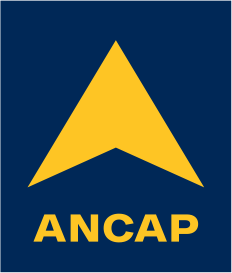APA, Shell and YPF materialized their interest in Uruguay and the exploratory period for the awarded offshore blocks begins, within the framework of the responsible energy transition strategy promoted by ANCAP.
With the authorization granted by the Executive Branch, new contracts were signed on December 12 for the exploration and eventual exploitation of oil and gas resources under the framework of the Open Uruguay Round, which has been in force since 2019.
• With APA1 for the block OFF-6
• With Shell2 for the blocks OFF-2 and OFF-7
• Withs YPF3 for the block OFF-5
• The contract for block OFF-4 will be signed in the next days with a Consortium formed by APA and Shell (50%-50%; APA Operator), once some administrative issues are solved.

In a press conference, the President of ANCAP, Alejandro Stipanicic, highlighted that "this is a historic milestone for the country because it is the first time that all offshore areas will have contracts in force, as in the coming weeks (once approved by the Executive Branch), the contract for the block OFF-3 will be signed with Challenger Energy. The oil industry has a renewed interest for the exploration offshore Uruguay, due to recent discoveries in Namibia, but undoubtedly this success also arises from the country's reputation and prestige for democratic, economic, and legal stability, as well as its unquestionable adherence to contracts and commitments made".
Stipanicic added, "these are major energy companies, which are also investing in renewables, in the production of advanced biofuels (synthetic fuels and second-generation biofuels) from green H2, the exploration for natural H2, as well as carbon capture and storage. Therefore, their presence in the country also provides significant support to the strategy led by ANCAP in the second energy transition defined by the Executive Branch through the Ministry of Energy."
A recognized business model
The Exploration and Production contract model approved in the Open Uruguay Round (Decree 111/019) are typical Production Sharing Agreements widely used in the industry. The contracts can have a duration up to 30 years, including exploration and eventual production. The first exploration sub-period, starting today, has a duration of 4 years and the companies undertake certain commitments to earn the right of extension.
Exploration activities committed for this initial exploratory sub-period include the evaluation and geological modelling of prospective resources, as well as licensing and reprocessing existing seismic data. The main new exploratory activities include the acquisition of 2500 km2 of 3D seismic by the APA-Shell consortium in the block OFF-4 and the exploratory well committed by APA in the block OFF-6. The total committed investment is approximately USD 130 million.
The contracts signed between ANCAP and the contractors stipulate that the private companies (APA, Shell, and YPF) bear all the risks, costs, and responsibilities of the activity and will only be reimbursed in the case of commercial production. The Uruguayan State would capture rent in the Production Sharing Contracts through ANCAP's association, its share of the Profit Oil and the Income Tax on the Contractor profit. In the event of commercial discoveries, ANCAP has the option to associate in the project with a maximum percentage which was part of each bid.
Environment protection: a national priority
Hydrocarbon exploration and production projects are subject to national environmental regulations, and ANCAP promotes the adoption of industry best practices and technologies aligned with these regulations and the goal of developing sustainable activities. In particular, these contracts between ANCAP and the oil companies do not allow venting or flaring of natural gas, so it is expected that the carbon intensity of barrels produced in Uruguay, in the event of a commercial discovery, will be among the lowest worldwide.
Uruguay has developed specific regulations and guidelines for these activities, to which all exploration, development, and production operations carried out by oil companies will be subject, including environmental authorizations for offshore seismic projects and offshore exploration wells, through the Ministry of the Environment as the competent and enforcing authority.
Responsible transition
Our country has advanced in the first phase of the energy transition, generating almost all its electricity consumption from renewable energies and it has identified green hydrogen and its derivatives as key pillars for the second phase of the transition, aiming to decarbonize other hard to abate sectors of its economy, such as heavy transportation and industry.
Investment in the exploration of oil and natural gas remains a global obligation, as new discoveries will need to offset the natural decline of fields in production, even in the scenarios with the fastest transition and reduction of the hydrocarbons consumption.
The exploration and eventual production of hydrocarbons do not imply a setback in ANCAP's ambition to lead the second phase of the energy transition. In fact, natural gas is expected to play a key role as a transitional energy source, since it provides excellent dispatchable backup with low carbon emissions for intermittent renewable energies. In the event that Uruguay did not consume fossil fuels and had production, it could eventually export all of it, benefiting from the income generated by the sale of these resources, to invest in renewable energy and green hydrogen projects, boosting the energy transition even more.
1APA Corporation: https://apacorp.com/
2Shell: https://www.shell.com/
3YPF: https://english.ypf.com/home.html



